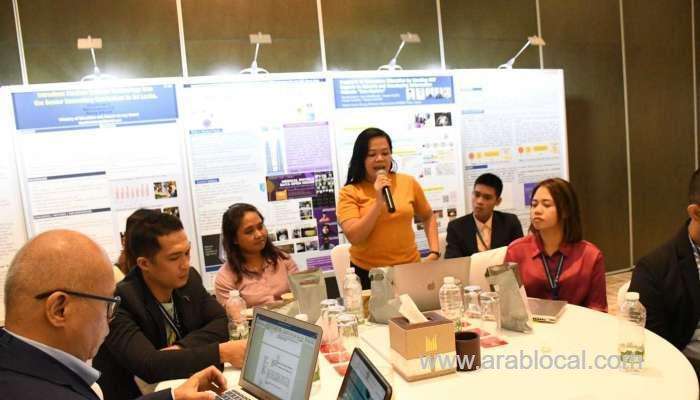
The Ministry of Education, in collaboration with the International Atomic Energy Agency, successfully concluded a regional workshop on the effective teaching of nuclear science and technology at the secondary school level. This significant five-day event brought together 81 participants from 22 different countries, with the primary aim of empowering secondary school teachers and improving their instructional skills in the realm of nuclear science and technology. The workshop also sought to raise awareness among educators about the diverse and wide-ranging applications of nuclear technology in various aspects of life.
Throughout the five days of this regional workshop, multiple sessions and presentations were held, focusing on best practices and experiences related to teaching nuclear science and technology. On the final day, session moderators presented the outcomes of the discussions and papers from these sessions.
The participants reached a consensus on an action plan aimed at contributing to the overarching goal of reaching 10 million students through the initiatives of the regional technical cooperation project RAS0091, which focuses on strengthening nuclear science and technology education. Additionally, they approved a strategy for enhancing teachers' skills in facilitating the learning of nuclear science and technology subjects in a sustainable manner.
The workshop featured informative posters from participating countries, including presentations on various topics, such as teaching nuclear science and technology in Bangladesh, integrating nuclear science and technology into secondary school curricula in Syria, curriculum development and teaching tools in Jordan, incorporating atomic energy and nuclear science into science curricula in Nepal, introducing nuclear science technology into upper secondary school curricula in Sri Lanka, supporting secondary education through the deployment of nuclear science and technology experts in schools, creating the Ene Hyakka information website, and applying radiological detection methods to promote best practices in linking nuclear science and technology to secondary education, using Learner Guided Activity Sheets (L-GAS) to enhance the academic performance of 10th-grade students, dispelling misconceptions about nuclear science and technology, and showcasing their societal and environmental benefits through curriculum design and evaluation.
The workshop yielded several recommendations, including the development of a comprehensive series of best practices guides for teaching nuclear science and technology at the secondary level. Furthermore, there was a unanimous agreement on crafting a specific strategy for nurturing teachers' proficiency in nuclear science and technology topics in a sustainable manner. An essential strategic action plan was also adopted to accelerate the achievement of the ambitious goal of reaching 10 million students by 2025.
It is noteworthy that the five-day workshop featured presentations by renowned experts in the field of nuclear science and technology, in addition to special poster exhibitions. Specialized sessions under the theme of "promoting awareness of nuclear science and technology in secondary education in the Asia-Pacific region" were organized. These sessions covered various topics, such as strategic partnerships to support good governance, integration of nuclear science and technology into school curricula, co-curricular activities, teaching strategies, learning facilitation tools, assessment, monitoring, and follow-up measures